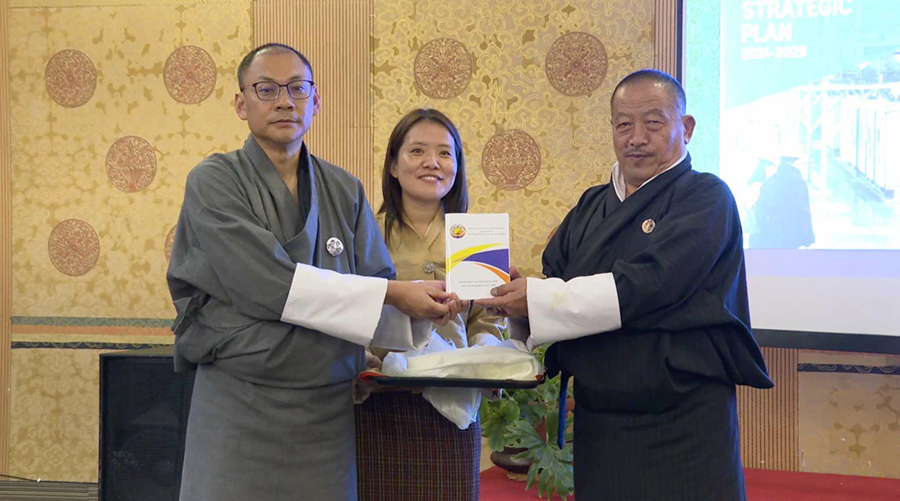
Considering the growing popularity of solar power plants, the Electricity Regulatory Authority, or ERA, launched the first Licensing Regulation for Solar Power Plant 2024 yesterday in the capital. This effort of the ERA is to make the ownership of solar power plants more systematic in the country. In effect from May this year, the regulation will now require individuals or any organisation to register for a license if they install or plan to install a solar power plant.
The solar power plant is categorised into five, as per the power plant capacity ranging from 30 kWp and below, to 3000 kWp and above.
The categories include different types of solar power plant such as rooftop, ground-mounted and utility scale solar power plant. Each category has its own requirement to meet.
According to the ERA, the launch of the regulation is a necessary step amid increasing number of solar power plant.
Phuntsho Namgyal, Chairman of the Electricity Regulatory Authority said “When more and more solar power generation is coming into the grid, we have to have an appropriate regulatory and licensing mechanism. That is to maintain the safety of the national grid and international grid, which means the transmission and domestic grids.”
He added that the authority and relevant stakeholders are promoting solar power plant and piloting as it is effective, and socio-economically apt.
“Bhutan actually imports power also during lean season in winter months and that is the time when our rivers become small. When the volume is low, the generation or hydropower generation goes down, but that is the time when the sunshine hours are good. There is less cloud, so the sunshine hours are very good. That is why the government has been promoting solar power.”
According to the regulation, a rooftop solar power plant capacity of 30 kWp and below need not apply for exemption, but should register with Bhutan Power Cooperation Limited.
However, a rooftop solar power plant capacity of more than 30 kWp and up to 1000 kWp, and a ground-mounted solar power plant of 300 kWp and below should apply for a grant of exemption license.
Furthermore, ground-mounted solar power plant capacity of more than 300 kWp and up to 3000 kWp, and utility-scale solar power plants of more than 3000 kWp should apply for a grant of the license.
Moreover, an applicant will have to pay application fees to the authority and annually pay license fees by end of June every year.
The authority will impose penalties on applicants who fail to pay the fees.
Singye Dema & Deki Lhazom
Edited by Sherub Dorji












